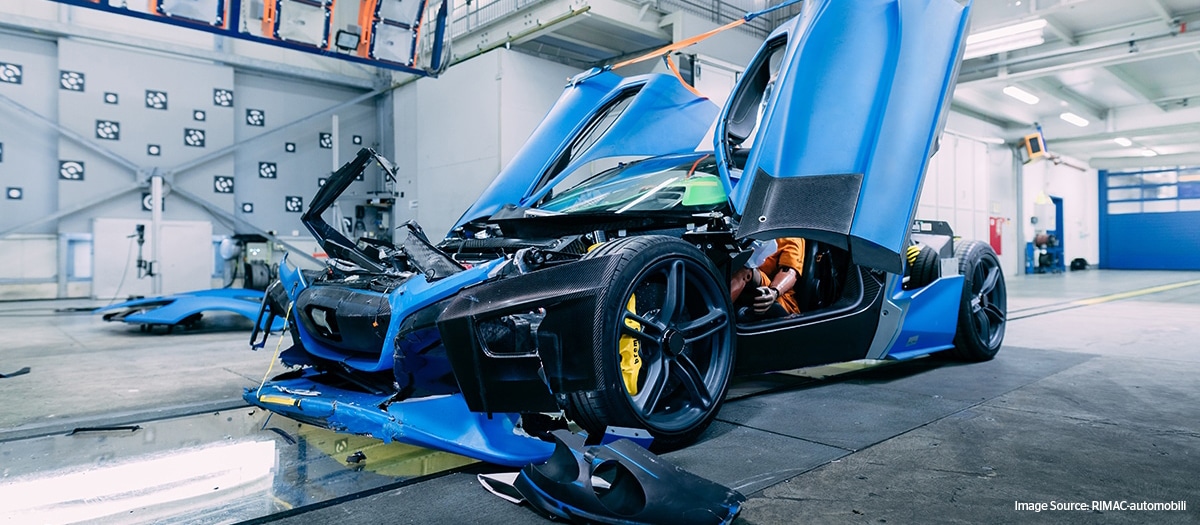Continental Engineering Services (CES) and Continental Safety Engineering International (CSEI) of the PSS BU (Passive Safety and Sensorics) in Alzenau near Aschaffenburg are jointly approaching manufacturers of premium sports cars and niche vehicles. Together they offer tailor-made solutions for vehicle safety.

If a customer such as Croatian electric sports car manufacturer RIMAC asks for a restraint system that is appropriate for the vehicle line, it will receive a complete offer including all the required components as well as the expected expenditure for system development, parameterization and software adaptation.
When a tailor-made system is integrated into a vehicle, the responsibilities are clearly separated: while the Alzenau site is responsible for testing and development work for the integration and design of the restraint system, the Frankfurt development and production service provider (CES) is responsible for its vehicle-specific electronics and software connection.
Task sharing with customer RIMAC:
Continental Engineering Services participates in the development of the ACU, the external crash sensors. Software and calibration data are flashed into the electronic control unit and then lasered into the customer label.
Continental Safety Engineering International conducts crash tests and calibrations at its own testing facilities in Alzenau.
At CSEI in Alzenau restraint systems are designed for the respective vehicle using crash and sled test facilities and simulations. This includes all integration work including parameterization based on crash test data. Within the framework of these series of tests, the vehicle-specific ignition times of the restraint systems are determined for the various load cases. The deformation behavior of the tested vehicle (known as pulses) is vitally important in this regard.
All mechanical components included in the complete package such as steering wheels, airbags and belts are offered by our partner company GSK in Taiwan.
On top of this, there are the necessary electronic components, such as the Airbag Control Unit (ACU) and crash sensors, to initiate the timely activation of an airbag, for example. Here it is the cooperation at Continental that counts: These electronic components are sourced from the Occupant Safety Systems (OSS) segment within Passive Safety and Sensorics (PSS) business unit in Regensburg.


CES engineers connect the electronics with the vehicle’s CAN architecture using modified, vehicle-specific software. The software basis for this development is adapted to the demands and requirements of small-series manufacturers by Continental Engineering Services.
Finally, the mechanical and electronic components of the overall system are matched to each other by means of integration processes.
To become less dependent on mass production in the future, CES and CSEI are already considering standard electronics for niche vehicles at this stage. Continental Engineering Services could then take over their production, including software, CAN connection, parameterization, and labeling in its own small-series production.





